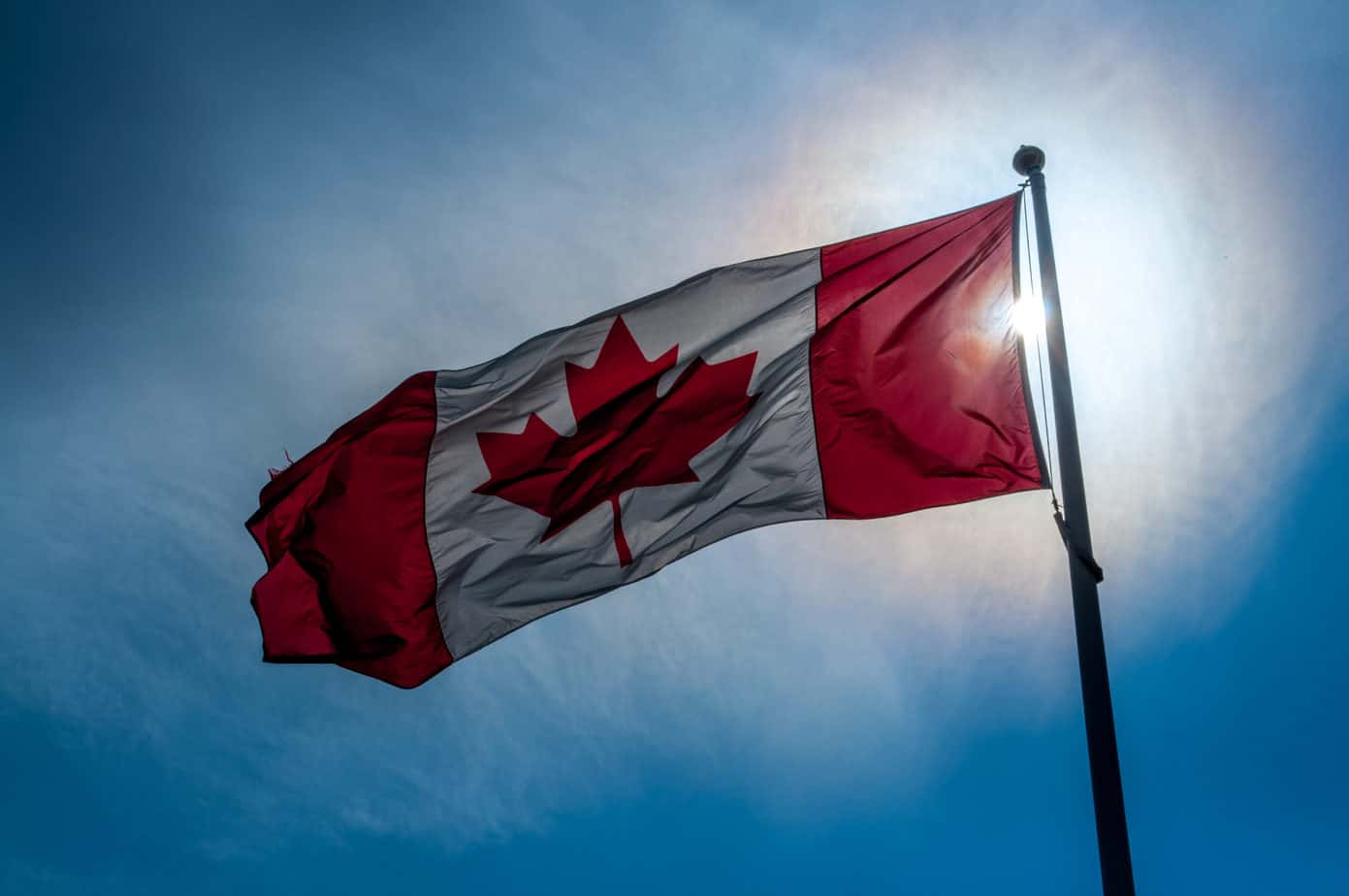

Dear Mr. Cope,
Amongst your many traits as CEO of Bell Canada Enterprises (BCE), tenacity, enthusiasm for your trade, and perseverance top the list. Conspicuous in its absence from your letter, however, is your sense of irony.
You begin the “unusual step of writing to all Canadians” (Strange, isn’t it, that “Canada’s Top Communication Company” should find it unusual to communicate with its customers?) with a history lesson, ostensibly in the interest of helping us “understand a critical situation” now facing the wireless industry: the potential entrance of an American company into the Canadian market.
You inform us that, since Parliament granted Bell its charter in 1880, Bell has spent 133 years “investing in delivering world-class communications services to Canadians.” An impressive track record!
You must, however, be aware that Bell’s permission to operate in Canada was initially obtained by agents acting in the interest of the (American) National Bell Telephone Company and that, after securing a favourable charter, three top-level executives from National Bell were appointed to Bell Canada’s board of directors (Babe, 1990, pg 68-69). Or how about how American Bell initially owned 50% of your company, only fully divesting its interest 43 years ago, in 1970 (Winseck, 1998, pg 119)?
You suggest that “US giants don’t need special help from the Canadian government,” but that’s exactly how Bell got to where it is today!
Bell began its life in Canada as a branch plant of an American company; in a strange twist of fate, it’s now a descendant of National Bell Telephone – Verizon – which is contemplating (re)entering the Canadian market. And they leveraged this relationship to get an early leg up on the competition – using patents owned by its American parent, Bell quickly monopolized the market for Canadian telephone services, a monopoly it used to funnel profits back to the States. (Smythe, 1981, pg 141)
You suggest that “US giants don’t need special help from the Canadian government,” but that’s exactly how Bell got to where it is today!
That’s all ancient history, however, and in the here and now, BCE is a Canadian company who “welcomes any competitor,” so long as they “compete on a level playing field.” Right?
You’re calling on the Federal government to close “loopholes” that are intended to promote competition in your industry – rules that your company has forced the government to create.
Regarding the three “loopholes” you want closed:
1. “Verizon would be able to buy twice as much of Canada’s airwaves as Canadian companies like Bell can in an upcoming auction of wireless spectrum – the airwaves that carry your calls and data.”
According to a recent article in the Financial Post, BCE currently holds license to 19% of Canadian radio frequencies designated for mobile use – that’s if you include the upcoming blocks of 700MHz in the total – or 29% if you don’t. Bell didn’t get most of that spectrum by paying market price, but through a ‘beauty contest’ – the government licensed mobile spectrum to Rogers, Bell, Telus and other regional providers such as MTS and SaskTel for pennies compared to market value.[1] You might call that “existing spectrum holdings previously subsidized by Canadian taxpayers,” something you’ve got in spades but would deny to your competition.
Even in the unlikely event that you don’t win a block of 700MHz in the upcoming auction, you’ll still be in control of 19% of all available mobile spectrum in Canada – more than twice as much as the set-aside provides for new entrants.[2]
The playing field looks pretty tilted from here.
2. “They get to piggyback on the networks of Canadian carriers wherever they don’t want to invest and build their own.”
At least you won’t have to worry about Verizon piggybacking on your network here in rural Manitoba – because you barely have one. Instead you’ve chosen to only cover the most densely populated (and most profitable) areas of the province while ignoring places like Thompson, Churchill and the Whiteshell – a practice that you reserve exclusively for Verizon. Where you do provide service – Ontario, Quebec, Vancouver, etc. (Winnipeg, Brandon, and immediately surrounding areas in MB) – you’re already sharing a network with TELUS. Since 2009, Bell and TELUS have been sharing their national 3G (HSPA) network infrastructure. You’ve needed help providing your services for years, why should we expect Verizon to go it alone?
Rogers also has similar agreements with regional providers such as MTS. In fact, all three national providers are already sharing their networks with their “competitors,” yet you actively campaign to exclude new entrants such as WIND and Verizon from the club. Not my idea of a level playing field.
3. “Verizon can acquire smaller Canadian competitors – but Bell and other Canadian wireless companies can’t even try.”
You note that “With Ottawa’s help, the new companies [WIND, Mobilicity, Public Mobile] have become part of the vigorously competitive Canadian wireless marketplace”. I have to point out that with your help, one of those companies is facing imminent financial insolvency, while the other two are actively courting buyers. Naguib Sawiris, WIND’s original backer, has frequently and publicly lamented his decision to test your waters. The previous contestants, (Clearnet and Microcell) I would add, met a similar fate when they were bought out by TELUS and Rogers in 2000 and 2004, respectively. Are we supposed to believe that TELUS is competing with Koodo, or Rogers with Fido?
After every challenger contesting your dominance of the wireless market has been bought out or squashed, is it any wonder that the government wants to act to promote real competition?
Faced with a choice between an American company fighting to gain a foothold in a hostile market or a Canadian one who takes my hard earned money for granted, I’ll pick the lesser of two evils.
Mr. Cope, I am Canadian. Like virtually every other Canadian I know, I rely on my mobile phone in my personal life and for my livelihood on a daily basis. The “critical situation” I face comes every month, when I open my wireless bill wondering whether I’ll be able to afford to pay it. Your company, along with Canada’s other major wireless providers, have had 30 years to address this situation. But you’ve failed. Posting huge profits and paying dividends year after year might satisfy your shareholders, but individual Canadians and their families are being hung out to dry. It’s time for a change. Faced with a choice between an American company fighting to gain a foothold in a hostile market or a Canadian one who takes my hard earned money for granted, I’ll pick the lesser of two evils. And if you don’t know which that is by now, I’ll happily send you a copy of my monthly phone bill.
[1]According to a report Bell submitted to Industry Canada’s invite-only Wireless Roundtable in 2010, total fees paid by spectrum licensees to IC is $132M per year, your share of which (29%) is $38.28M per year by my estimate. Sounds like a lot, until you consider that you paid nearly that much at auction just to secure AWS spectrum for Toronto alone (Per year cost of winning bid for 10 year license.) It’s fair to say that most of the spectrum you’re holding (and have been for up to 30 years) has cost you significantly less than market value. Why should you have access to public subsidies for spectrum but not your competitors?
[2] This estimate excludes spectrum held by Bell et al for radio and television broadcasting, but includes the BRS spectrum – intended for mobile internet but out of use since early 2012 – currently being hoarded by Inukshuk Wireless, a joint venture between Bell and Rogers. Also, it assumes that Verizon will not have completed acquisition of Wind or other new entrants prior to the auction.
Sources Cited:
Babe, Robert E. Telecommunications in Canada. University of Toronto Press, Toronto. 1990.
Smythe, Dallas. Dependency Road: Communications, Capitalism, Consciousness, and Canada. Ablex Publishing, New Jersey. 1982.
Winseck, Dwayne. Reconvergence: A Political Economy of Telecommunications in Canada. Hampton Press, New Jersey. 1998.
______________
ABOUT THE AUTHOR
Ben Klass is a candidate for a Masters Degree at the University of Manitoba, where he is currently completing a thesis project on the political economy of Canadian telecommunications. He holds an Honours Bachelor of Arts from the University of Toronto (2006). When he’s not reading and writing about telecom, he can be found building cabins around the Whiteshell Provincial Park in Eastern Manitoba, or working in the local Post Office. Check out his blog here.
__________________
Comment
Leave a Reply
You must be logged in to post a comment.






 Share
Share Tweet
Tweet Share
Share




Well said Ben – thank you for a thoughtful, measured analysis, particularly the historical pespective. Canadians need to understand whose interests the telcos protect.
One point you neglected to mention is that Canadians pay the highest cell phone rates in the world, for mediocre service. Perhaps it is only the promise of lower prices from real competition that scares Bell, Rogers and Telus. They don’t want to share such a lucrative market (i.e. monopoly). Anyone remember the French Revolution???
Of course sending the CEO of Bell who made $11.1-million last year (http://www.theglobeandmail.com/globe-investor/bces-cope-saw-pay-package-rise-to-111-million-last-year/article10342502/) your cell phone bill likely won’t garner sympathy, it would be pocket change for him.
Ben, can you please address the contention by some that Canadians pay higher rates due to how large our country is and how sparsely populated most areas are?
Great letter Ben, its nice to see someone stepping up to say something about the atrocity that is our mobile phone system in Canada.
http://1degree.typepad.com/site/images/2008/01/02/mobile_rates_graph.jpg
This graph is from 2007 I believe and you can see how large the disparity actually is, its appalling.
Yes BELL what say you now!?
Thank you – I’ve been waiting for an opposing view on this matter!
Bell wouldn’t even cancel my sisters cell phone contract after she was over 6 months dead because the account was in my dads name. My dad had been paying almost 100 dollars a month for an inactive phone. It was too emotionally painful for him to phone in and cancel. My mom tried to do it a few times but she couldn’t even get someone on the line regarding my dads account. I finally got through to them and explained the situation. They wouldn’t cancel the contract for free and made him pay another 200 dollars or so just to end it.
Of course Bell is scared of competition. If there was competition then maybe they would have had a little more compassion and customer understanding. Once these companies lure you in they don’t make any attempt to keep you on as customers until it comes time to renew your 3 year deal.
As a customer who has paid for 3-4 cell phone lines on bell for the last almost 10 years my father deserved better.
I note the author did not do a cost structure comparison..Canada has the lowest population density per square km in the world relative to other developed economies,a key factor in setting rates. And if you’re going to complain about cellphone rates, why not include food,cars and a host of other products/services that cost us a lot more than what Americans pay? Why is that and why don’t we complain about that as we cross the border bridges ? My research shows Canadian cellphone rates among the lowest in the world. And talk about level playing fields…do you think the excited states would offer Canadian telcos the preferential treatment Harper is giving Verizon? The truth is Harper is seeking to divert attention from his scandal ridden gov’t given his drastic drop in the polls and this phony issue is nothing but a cheap political ploy to that end.Canadians should not be taken in by Harper’s blatant cynicism!
We can’t use the excuse that Canada’s population denotes the prices we pay. On a recent episode of Market Place, it was made clear that the reason we pay higher prices is simple greed on the part of the retailers in our country. There is no law governing the prices we pay vs what is paid in the US. I think Bell is afraid of the competition and really does not care about Canadians at all.
You should cancel your bell cell phone once your contract is up, find a good data plan (if there is such a thing in Canada?), and use fongo.com – Fongo is a wifi/data (Internet) phone service that you can use on most smartphones and its free. You don’t pay extra for voice mail, SMS, etc. They do offer some premium services however, the basic service will put money back into your pocket every month. Send a message by choosing not to pay the big companies any more. I personally can’t wait for more competition in Canada. At the end of the day, i want to keep more of the money I work hard to earn not pay it out to companies making crazy margins.